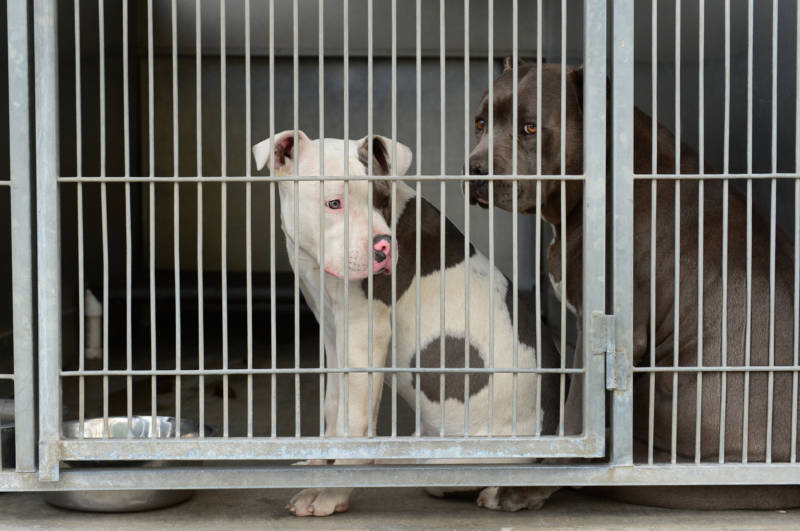California will no longer label dogs seized from illegal fighting rings as "vicious," making safe rescue dogs more likely to get adopted.
Gov. Jerry Brown signed legislation Monday to give dogs with cruel owners a chance at rehabilitation.
"Once it goes into effect, all of these canine victims of cruelty will get a second chance and potentially be able to have a new beginning," said Brandy Kuentzel, general counsel and director of advocacy for the San Francisco Society for the Prevention of Cruelty to Animals.
AB1825 allows animal sanctuaries, veterinarians and others to judge dogs' behavior before labeling them.
State law classifies as vicious any dog that hurts a person without provocation. It previously included dogs from fighting rings whose owners were convicted of felony dogfighting.
